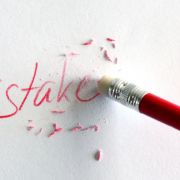Remote Work – Better for Productivity?
Few people know that the 8-hour work schedule has its origins from the times of the Industrial Revolution and not the Information Age. During the second half of the 18th century, the standard norm was workdays of 10-16 hours due to the fact that factories required to be run 24/7. This type of schedule had become absolutely brutal and exhausting for workers, but change only started to happen with 1817 when Welsh activist Robert Owen advocated for 8-hour workdays, his slogan being: “Eight hours labour, eight hours recreation, eight hours rest.”
Close to a century later, in 1914 to be exact, the 8-hour schedule became the norm when Ford Motor Company started working on 8-hour shifts whilst also doubling workers’ wages. The result was obvious for everyone to see, a dramatic increase in productivity. Nowadays, it may seem unfathomable to work for more than 8 hours, but history offers us a lesson into how things have developed along the way. At the moment, we may witness another disruption into the workday schedule. In a recent research revolving around this issue, it was suggested that in an 8-hour shift, the average worker is productive for a mere 2 hours and 53 minutes.
It is becoming more and more obvious to many of us that the modern workplace is not the well of productivity everyone hoped for. Furthermore, for many of us, the workplace is actually filled with distractions of all natures. Combine this with the everyday hassle of commuting and you got yourself one long day of work. Of course, situations such as these can be avoided through a flexible schedule arrangement, this being an option more sought after than ever before.
In one of the most recent FlexJobs surveys on remote work, it has been discovered that 66% of professionals they’ve interviewed said they would be more productive if they could work from home, rather than the office. The most common reasons why they favoured working from home:
- 76% wanted fewer disruptions from co-workers.
- 70% reduce stress levels from commuting.
- 69% wanted to avoid office politics.
The survey also revealed something incredible, only 7% of the people interviewed said that they are productive during regular office hours. If only so very few people are productive during their regular schedules, then there is something inherently wrong with our traditional workplace model.
In the past, there were fewer distractions and fun past time activities. Also, there was no internet and the sheer volume of information that we are being bombarded with. Due to these changes and shifts in programmes and schedules, there are people that don’t fit into the normal productivity ranges. There are people who are at their best really early in the morning, while others’ productivity goes through the roof during night hours. That is why it is a bit foolish to expect that all your employees to give their best during the 9-5 programme.
Your average worker gets disrupted every 3 minutes, and recovering from that is time-consuming. We need, on average, about 23 minutes to return to a task after being disrupted. Furthermore, discoveries in the field of neuroscience have all but confirmed what we were all thinking: the human brain cannot concentrate for 8 straight hours.
One of the career specialists at FlexJobs, Brie Reynolds, said that given the meteoric rise in remote work and freelancing, workers have become more aware of the future of work environment. This has risen from a simple combination of factors that encompass demographics and remote-friendly technology. Millennials have been growing up with technology by their side, so it is more than natural for them to expect they can work remotely. There are companies that now offer flexible hours to their new employees. And if your job requires the simple use of a laptop, then you can basically work full-time for any company in the world. At the moment, what we are experiencing in the workforce, is a hybrid model where people work alternatively from home and from the office.
For employers, Reynolds has a simple suggestion: “crafting remote programmes which help employees be at their productive best, whilst keeping the good parts of in-office interactions.” For the time being, the hybrid model seems to the best approach, given the simple fact that many companies are still struggling with coming up with the necessary tools and programmes in order to make remote work a success for their operations.
However, in a recent Gallup survey, it has been revealed that although remote work is on the rise the United States, employees that work exclusively from home are the least engaged. The reasons for this are isolation and ambiguous job descriptions. There are some companies that have been successful in implementing a proper remote work programme. These organisations, as pointed out by Gallup, were disciplined in creating proper plans and processes for this to work. Some of the techniques they have used include:
- Face-to-face meetings with remote working employees.
- In-depth training programmes.
- Implementing a ‘buddy system’ for new employees during their first few months.
Implementing successful remote work programmes is going to require a lot of work for your organisation. However, given the fact that more and more talented workers want flexible working hours (and it cannot be negotiable), you simply cannot ignore this trend.
Great People Inside provides easy-to-use tools and processes to attract, assess, match, select, onboard, manage, develop, benchmark and maintain workforces anywhere in the world.
Finding the right talent, the best fit for the job and your organisation can be a very challenging task. It requires deep knowledge of your own organisation’s culture and a keen understanding of the candidate’s personality, strengths, interests, work style and other characteristics. Our technology and solutions will do the work for you, helping you find employees who can flourish and reach the highest performance required to constantly bring your company forward.
Request a free demo:
Sources:
http://fortune.com/2015/08/04/brian-shapland-productivity-at-work/
https://www.forbes.com/sites/irisleung/2017/08/31/report-only-7-of-workers-feel-productive-during-regular-work-hours/#10571760744e
https://www.inc.com/melanie-curtin/in-an-8-hour-day-the-average-worker-is-productive-for-this-many-hours.html












